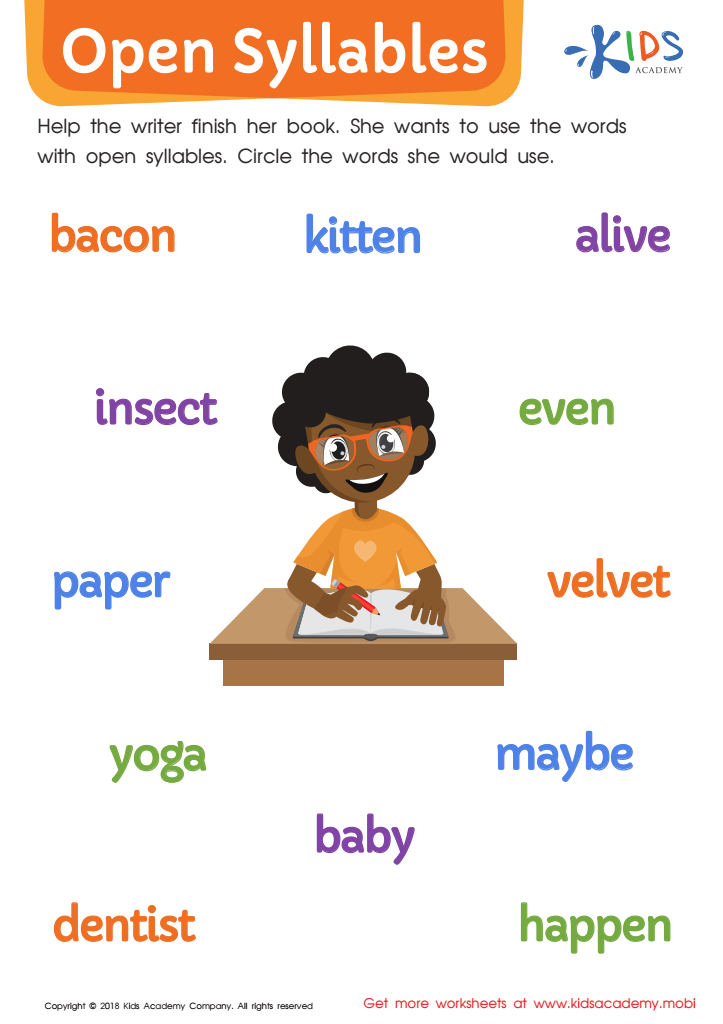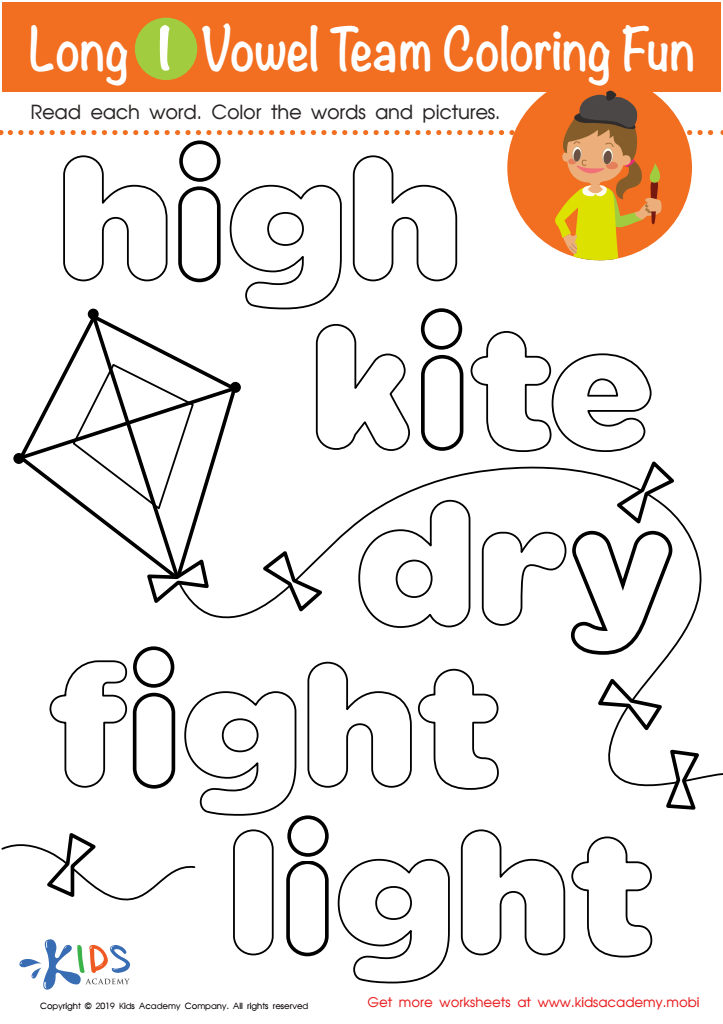Word identification Phonics Worksheets for 9-Year-Olds
4 filtered results
-
From - To
Discover our engaging Word Identification Phonics Worksheets designed specifically for 9-year-olds! These worksheets aim to enhance reading skills through fun and interactive activities, helping young learners recognize and identify words. By focusing on phonetic patterns and sound recognition, our resources provide a comprehensive approach to mastering essential literacy skills. Perfect for reinforcing classroom learning or as valuable homework materials, these worksheets encourage independent practice and boost confidence in reading abilities. With vibrant illustrations and varied exercises, your child will enjoy developing their phonics knowledge while building a strong foundation for future reading success. Explore our collection and enhance your teaching toolkit today!


Open Syllables Worksheet


Phonics and Word Recognition: Assessment 1 Worksheet


Long I Vowel Team Coloring Worksheet


Phonics and Word Recognition: Assessment 2 Worksheet
Word identification and phonics are crucial components of reading development, especially for 9-year-olds who are transitioning from learning to read to reading to learn. At this stage, children encounter more complex texts, and solid phonics skills enable them to decode unfamiliar words, fostering confidence and fluency in reading.
Parents and teachers should care about phonics instruction because it directly impacts a child's overall academic success. Proficient word identification helps children understand and engage with content across subjects. When they struggle with reading, comprehension suffers, leading to gaps in knowledge that can affect their performance in subjects like science, history, and mathematics.
Additionally, strong phonics skills aid in developing vocabulary and spelling proficiency, which is critical for effective communication. Children who are resilient in phonetic techniques feel more empowered to tackle challenging texts, which cultivates a lifelong love of reading.
Moreover, early intervention in phonics can prevent long-term literacy difficulties, influencing a child's educational trajectory. By prioritizing word identification and phonics, parents and teachers can support children's growth, build essential skills, and ensure they have the tools to succeed academically and personally. Engaging in this aspect of literacy development is foundational for a child's future.
 Assign to My Students
Assign to My Students















